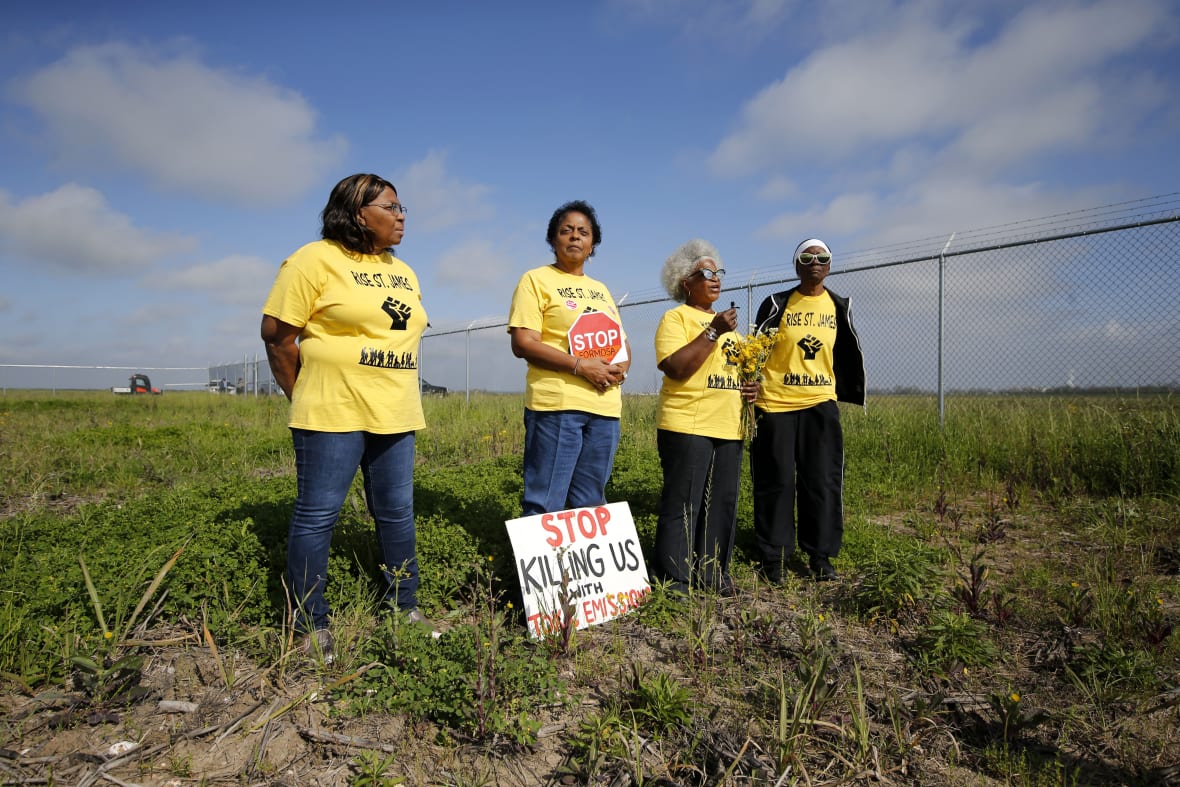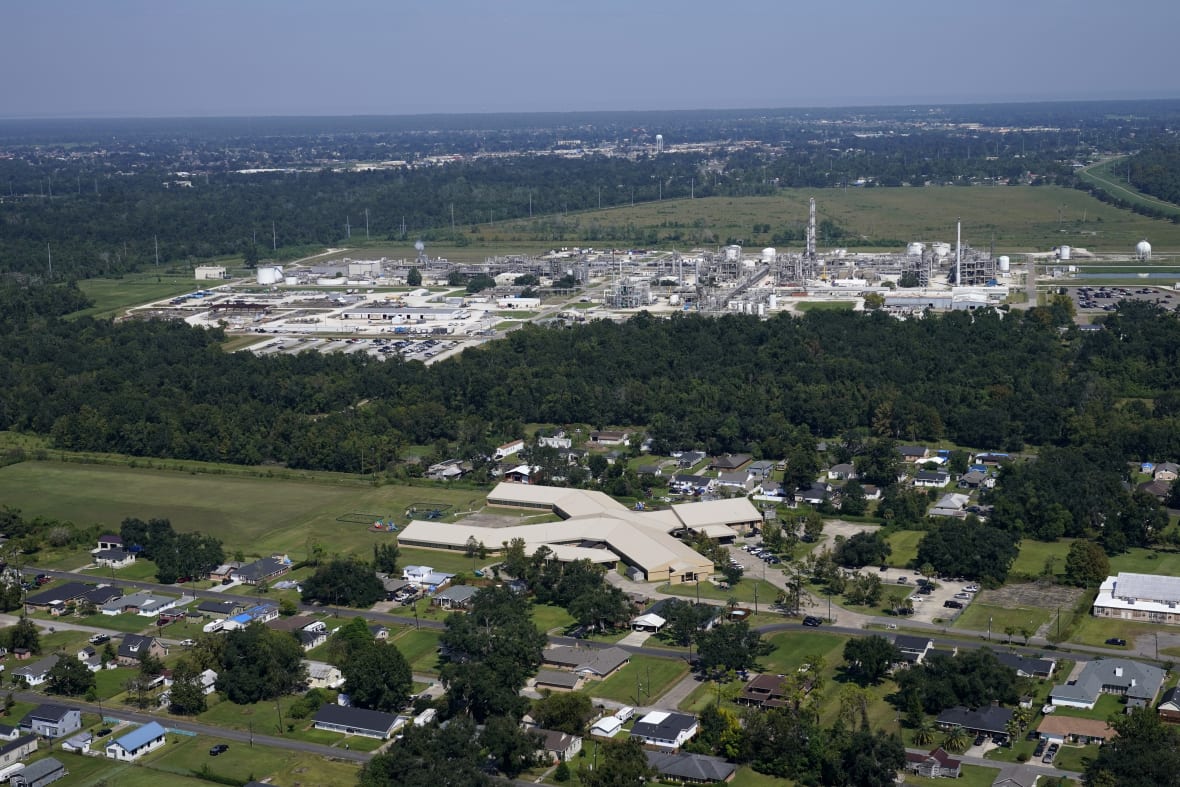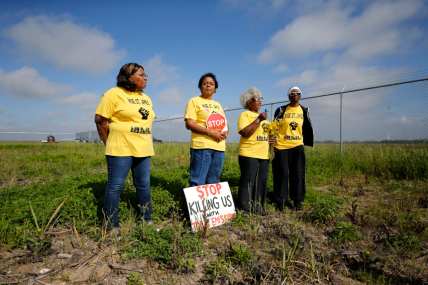EPA backs off investigation that alleged Black people lived with higher cancer risk in southeast La.
The EPA initially said that Black residents along a Louisiana industrial corridor bear a disproportionate health risk of pollution from chemical emissions.
The Biden administration has dropped an investigation into whether Louisiana officials put Black residents living in an industrial stretch of the state at increased cancer risk, despite finding initial evidence of racial discrimination, according to a federal court filing Tuesday.
The Environmental Protection Agency said a resolution “is not feasible” by a July deadline. It ends an inquiry that some activists in majority-Black communities had praised as finally offering a chance to improve their health.

The agency said it has taken several “significant actions” involving Denka, a polymer plant at the heart of the investigations, including an agreement to cut emissions. It also filed a lawsuitagainst the company alleging it imposed an unacceptable cancer risk to nearby residents, and tightened regulations. But the investigation did not compel Louisiana to make any commitments of its own. Commonly, a civil rights investigation will end with commitments by the target to do better.
Louisiana had argued in a recent federal court filing that the administration had improperly “weaponized” a part of civil rights law in pursuing the investigations.
The Biden administration has prioritized environmental justice, drawing praise from activists for going so far as to create a new office last year to focus on cases of alleged environmental discrimination. Those activists were dismayed to learn of the retreat in Louisiana, saying it would be “deeply problematic” if it represents a broader curtailment of civil rights investigations.
“It is a dangerous precedent,” said Patrice Simms, an attorney with Earthjustice, one of the environmental groups that asked the EPA to investigate Louisiana.
Last year, the agency accepted complaints from activists to investigate Louisiana’s regulation of air emissions in an industrial corridor called the Mississippi River Chemical Corridor but colloquially referred to as “cancer alley.” It said there was initial evidence of racial discrimination. The federal government and state officials had been in informal talks to resolve the allegations.
That process has now come to an end without a formal finding of discrimination by the EPA.
“We are disappointed in the EPA,” said Sharon Lavigne, resident and founder of Rise St. James, a group that filed a complaint that prompted the EPA to investigate. It was important to her that EPA Administrator Michael Regan visited the area, she said, adding that she had had high hopes for the investigations.
“We were hopeful because we thought we were going to win this,” she said.
The EPA said it would analyze how residents — especially those who live near the Denka plant — are exposed to a variety of dangerous emissions. The study would aim to “characterize the current baseline cumulative health risks and burdens” in the community and provide recommendations. The EPA wants the community to participate in the process and they invited the state to take part as well, although it is not forced to.

The EPA also disposed of a complaint over emissions from a proposed chemical plant to be operated by FG LA, a Formosa Plastics affiliate, in the same industrial corridor. The agency noted that permits for the facility had been vacated and were now in litigation in state court.
The EPA’s initial findings said it appears that for decades, the Louisiana Department of Environmental Quality let a Denka polymer plant expose people who live nearby and children at an elementary school to enough chloroprene, a chemical used to make synthetic rubber, to increase their cancer risk. The EPA had said Black residents “along the entire corridor” bear a disproportionate health risk from pollution, including near the proposed Formosa facility.
Denka has reduced its emissions in recent years. It called the investigation “ill-conceived” and said the EPA should focus on “science, not politics.”
Louisiana filed a federal lawsuit challenging the investigations in May. It accused the EPA of exceeding its authority under Title VI of the Civil Rights Act of 1964 by improperly pressuring the state to make radical changes to the state’s air permitting regime, including implementing new practices that would consider how multiple chemical facilities in an area might cumulatively harm nearby majority-Black communities.
“The agency has weaponized Title VI as a blanket grant of authority to veto any and all permitting decisions that offend its vision of environment justice and ‘equity,’” Louisiana said in a federal court filing last week, asking a judge to halt the investigation.
Title VI of the Civil Rights Act forbids anyone who receives federal funds from discriminating based on race or national origin. It’s been used in housing and transportation, but until the Biden administration, rarely on environmental matters.
The state says Title VI was designed to go after intentional discrimination, not programs that may incidentally harm one racial group more than another. A conservative Supreme Court in recent years has been skeptical of the EPA’s regulatory authority in major cases concerning greenhouse gas emissions and water pollution. Louisiana argues the EPA is trying to use civil rights law in a way that Congress hasn’t clearly allowed — a position in conflict with the justices’ recent rulings.
Simms said the Supreme Court’s recent decisions are an “invitation for some of these kinds of challenges” from states that are fighting back against the EPA’s power.
The EPA may have decided this wasn’t the right case to test its Title VI authority, said J. Michael Showalter, an environmental attorney with ArentFox Schiff.
Plus, the Supreme Court will soon decide a major affirmative action case that touches on the power behind Title VI. A decision that curtails Title VI could limit the agency’s authority to wield the civil rights law, said Julius Redd, an environmental attorney at Beveridge & Diamond P.C.
“I anticipate that EPA took this action to mitigate the risk” of a bad court ruling, he said.
The EPA didn’t immediately comment.
TheGrio is FREE on your TV via Apple TV, Amazon Fire, Roku, and Android TV. Please download theGrio mobile apps today!



